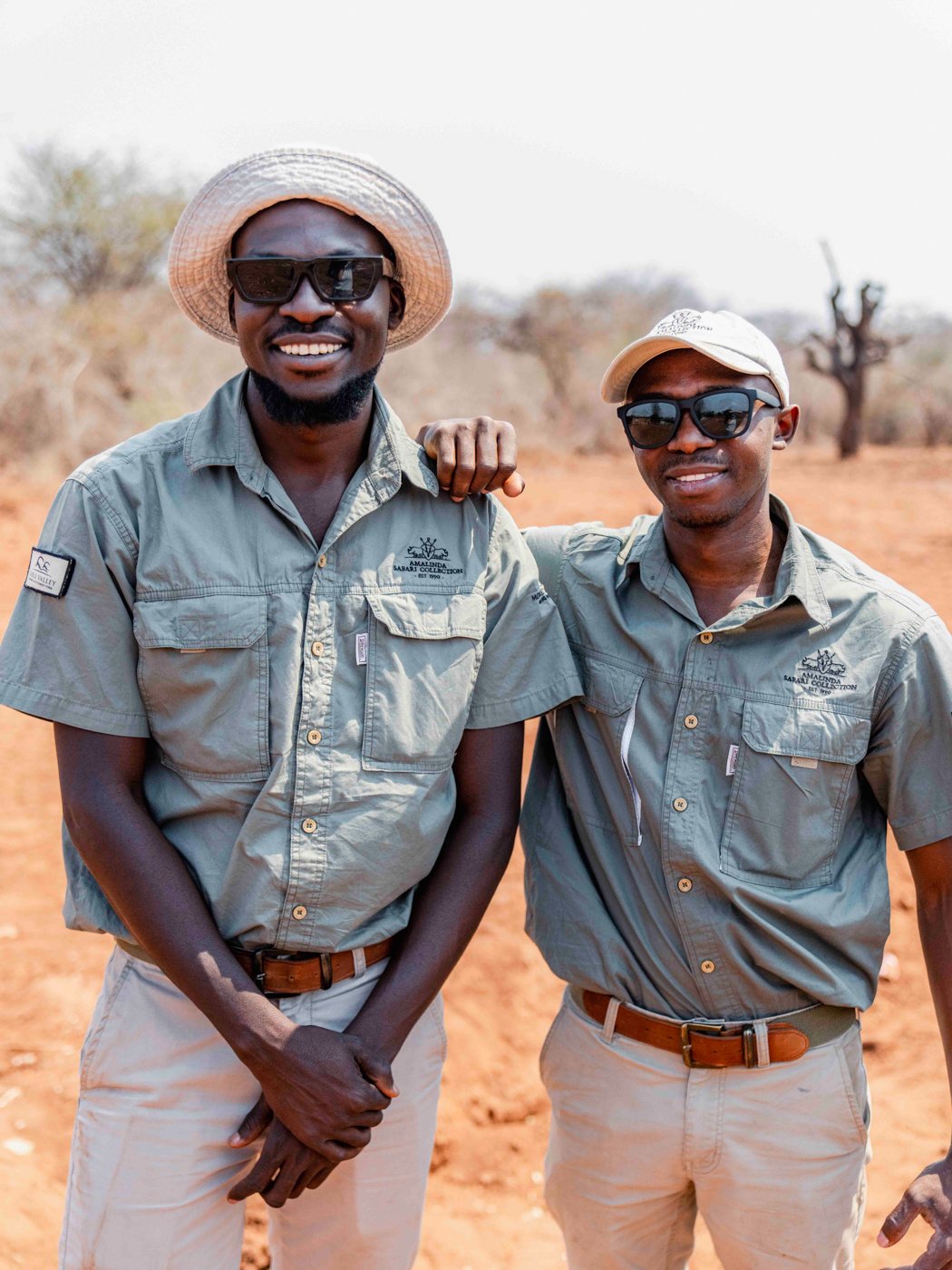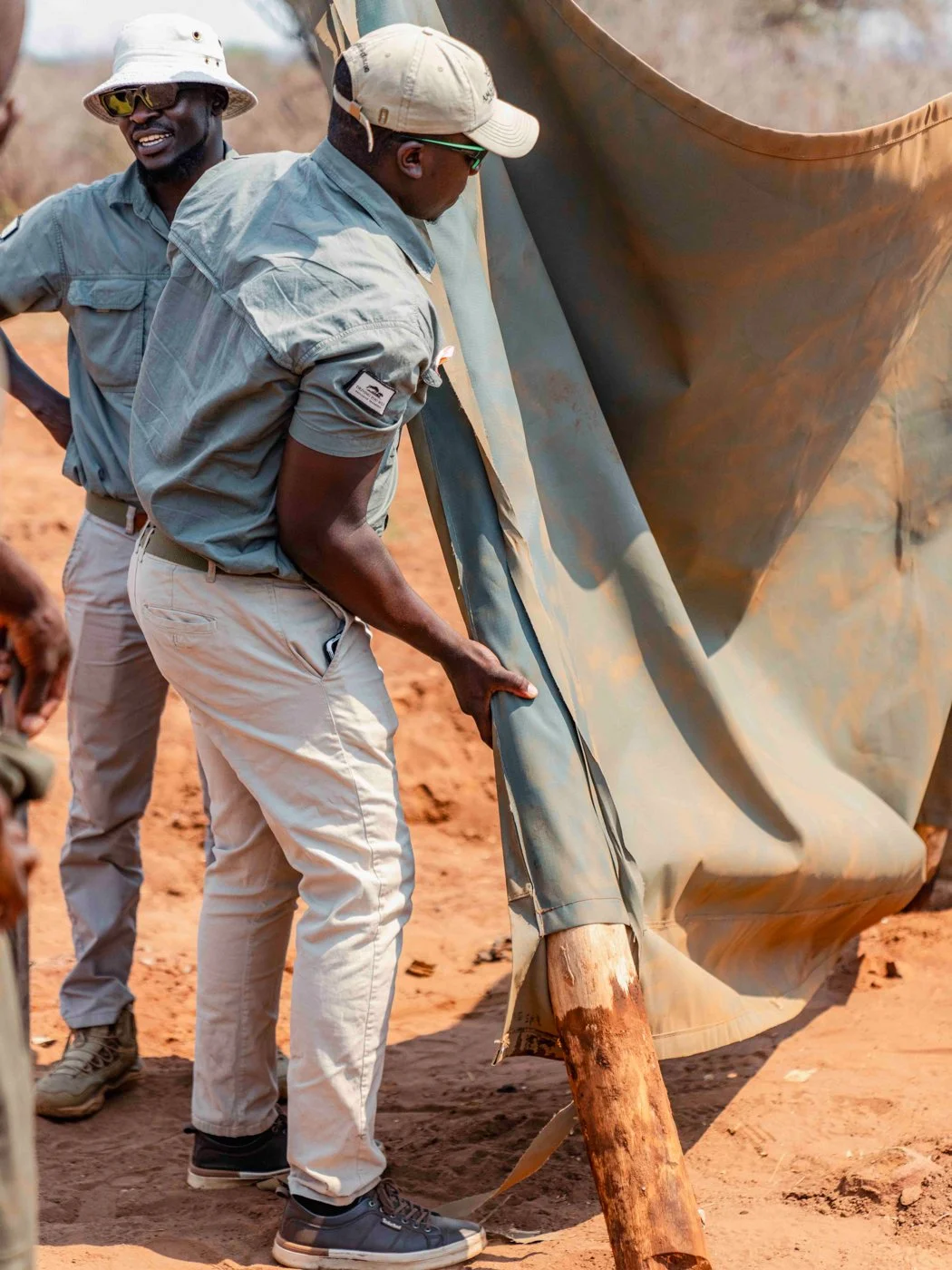How Predator-Proof Bomas Are Transforming Conservation and Farming in Zimbabwe
In the heart of Zimbabwe, where humans and wildlife coexist in a delicate balance, finding solutions to protect both livelihoods and ecosystems is critical. One such innovation championed by the Mother Africa Trust (MAT), Amalinda Safari Collection’s own registered nonprofit, is the implementation of predator-proof bomas. These enclosures are not only safeguarding livestock but also driving regenerative agricultural practices, strengthening the connection between conservation and community well-being.
The Concept of Predator-Proof Bomas
A boma, traditionally a livestock enclosure, has long been a vital structure in African farming communities. However, traditional bomas often fall short when it comes to deterring predators like lions, leopards, and hyenas, leading to devastating losses for farmers and escalating human-wildlife conflict. Predator-proof bomas, particularly mobile designs, offer a transformative solution.
These enclosures are built with resilience and versatility in mind, incorporating fewer poles and lightweight materials to make them easy to transport. By securing livestock at night, these structures significantly reduce predation while offering a host of additional benefits.
Environmental and Agricultural Benefits of Mobile Bomas
Preventing Deforestation
Traditional bomas often rely on cutting down trees for construction, putting immense pressure on forest resources. Mobile bomas, by contrast, are designed to minimize material requirements, directly contributing to the preservation of local forests.Pest and Tick Control
Permanent bomas are breeding grounds for ticks and other pests due to prolonged livestock presence in one area. Mobile bomas allow livestock to graze in different locations, disrupting pest lifecycles and improving herd health without relying on chemical treatments.Mitigating Human-Wildlife Conflict
Human-wildlife conflict remains one of the most pressing issues in regions like Matobo Hills, where the proximity of livestock to predator habitats often leads to clashes. Mobile predator-proof bomas serve as a physical deterrent, keeping livestock safe and reducing retaliatory killings of predators, which are vital to maintaining ecological balance.Improving Soil Fertility
One of the most innovative aspects of mobile bomas lies in their role in regenerative agriculture. By rotating enclosures across fields, livestock naturally fertilize the soil, enriching it with nutrients and addressing issues of nutrient leaching caused by monoculture farming. This simple yet effective method revitalizes degraded soils, leading to healthier crops and higher yields over time.
The Siyanyanga Model: Building Resilience through Community Involvement
In Siyanyanga, one of the communities supported by MAT, mobile bomas are already making a difference. The Basket Weaving Group, a community-based initiative, benefits from these bomas through a rotational system that maximizes their impact. Families move the bomas across their fields, ensuring that each area receives the dual benefits of soil fertilization and livestock protection.
This collaborative approach fosters a sense of ownership and responsibility, empowering communities to become stewards of both their land and the surrounding wildlife. It also serves as a scalable model for other regions facing similar challenges.
Meet some of our Mother Africa Trust Team!
Left: Willbroad Ncube, Field Officer
Right: Lucky Mathe, Project Manager
How Predator-Proof Bomas Fit into a Bigger Picture
The implementation of predator-proof bomas goes beyond livestock safety—it’s about creating a sustainable future where communities and wildlife thrive side by side.
Building Trust and Cooperation
MAT’s work in facilitating these projects strengthens relationships between conservationists and local communities. By addressing the immediate concerns of farmers, such as livestock predation, MAT builds trust, opening the door to broader conservation initiatives.Enhancing Food Security
In areas where declining crop yields threaten livelihoods, the soil-enriching benefits of mobile bomas contribute to long-term food security. Fertile soil translates into healthier crops and more stable incomes for farming families.Supporting Biodiversity
By reducing the need for retaliatory predator killings and fostering a culture of coexistence, predator-proof bomas help maintain the delicate balance of ecosystems. Apex predators like lions and leopards play a critical role in regulating prey populations and ensuring ecosystem health.
Looking Ahead: Expanding the Impact of Predator-Proof Bomas
The success of mobile bomas in Siyanyanga is just the beginning. MAT envisions expanding this initiative to other communities within Zimbabwe and beyond, integrating the practice into larger regenerative agriculture and conservation strategies.
For travelers interested in a more meaningful approach to safari, our 6-Day Travel With Purpose Itinerary provides the opportunity to learn about and participate in our Mother Africa Trust initiatives. This itinerary offers a unique experience: to witness the intersection of community and conservation efforts firsthand. It’s a reminder that every safari experience can play a role in supporting projects that protect both people and wildlife.
Through innovative projects like predator-proof bomas, MAT is demonstrating that solutions to human-wildlife conflict don’t have to come at the expense of the environment. Instead, these initiatives prove that harmony between communities, wildlife, and the land is not only possible—it’s essential for a sustainable future.









